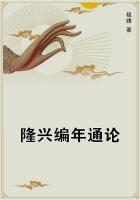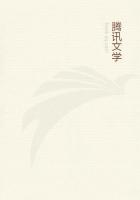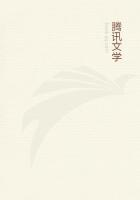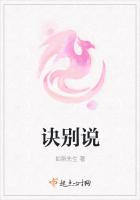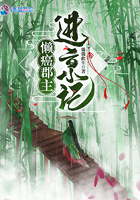Mr. Stillingfleet, in his Tracts, says that 'if the wheatear (oenanthe)does not quit England, it certainly shifts places; for about harvest they are not to be found, where there was before great plenty of them.' This well accounts for the vast quantities that are caught about that time on the south downs near Lewes, where they are esteemed a delicacy. There have been shepherds, I have been credibly informed, that have made many pounds in a season by catching them in traps. And though such multitudes are taken, Inever saw (and I am well acquainted with those parts) above two or three at a time: for they are never gregarious. They may, perhaps, migrate in general; and, for that purpose, draw towards the coast of Sussex in autumn; but that they do not all withdraw I am sure;because I see a few stragglers in many counties, at all times of the year, especially about warrens and stone quarries.
I have no acquaintance, at present, among the gentlemen of the navy: but have written to a friend, who was a sea-chaplain in the late war, desiring him to look into his minutes, with respect to birds that settled on their rigging during their voyage up or down the channel. What Hasselquist says on that subject is remarkable:
there were little short-winged birds frequently coming on board his ship all the way from our channel quite up to the Levant, especially before squatty weather.
What you suggest, with regard to Spain, is highly probable. The winters of Andalusia are so mild, that, in all likelihood, the soft-billed birds that leave us at that season may find insects sufficient to support them there.
Some young man, possessed of fortune, health, and leisure, should make an autumnal voyage into that kingdom; and should spend a year there, investigating the natural history of that vast country. Mr.
Willughby * passed through that kingdom on such an errand; but he seems to have skirted along in a superficial manner and an ill humour, being much disgusted at the rude, dissolute manners of the people.
(* See Ray's Travels, p. 466.)
I have no friend left now at Sunbury to apply to about the swallows roosting on the aits of the Thames: nor can I hear any more about those birds which I suspected were merulae torquatae,.
As to the small mice, I have farther to remark, that though they hang their nests for breeding up amidst the straws of the standing corn, above the ground; yet I find that, in the winter, they burrow deep in the earth, and make warm beds of grass: but their grand rendezvous seems to be in corn-ricks, into which they are carried at harvest. A neighbour housed an oat-rick lately, under the thatch of which were assembled near an hundred, most of which were taken;and some I saw. I measured them; and found that, from nose to tail, they were just two inches and a quarter, and their tails just two inches long. Two of them in a scale, weighed down just one copper halfpenny, which is about a third of an ounce avoirdupois: so that Isuppose they are the smallest quadrupeds in this island. A full-grown mus medius domesticus weighs, I find, one ounce, lumping weight, which is more than six times as much as the mouse above;and measures from nose to rump four inches and a quarter, and the same in its tail.
We have had a very severe frost and deep snow this month. My thermometer was one day fourteen degrees and a half below the freezing point, within doors. The tender evergreens were injured pretty much. It was very providential that the air was still, and the ground well covered with snow, else vegetation in general must have suffered prodigiously. There is reason to believe that some days were more severe than any since the year 1739-40.
I am, etc., etc.
Letter XIV
To Thomas Pennant, EsquireSelborne, March 12, 1768.
Dear Sir,If some curious gentleman would procure the head of a fallow-deer, and have it dissected, he would find it furnished with two spiracula, or breathing-places, beside the nostrils; probably analogous to the puncta lachrymalia in the human head. When the deer are thirsty they plunge their noses, like some horses, very deep under water, while in the act of drinking, and continue them in that situation for a considerable time, but, to obviate any inconvenience, they can open two vents, one at the inner corner of each eye, having a communication with the nose. Here seems to be an extraordinary provision of nature worthy our attention; and which has not, that I know of, been noticed by any naturalist. For it looks as if these creatures would not be suffocated, though both their mouths and nostrils were stopped. This curious formation of the head may be of singular service to beasts of chase, by affording them free respiration: and no doubt these additional nostrils are thrown open when they are hard run.* Mr. Ray observed that, at Malta, the owners slit up the nostrils of such asses as were hard worked: for they, being naturally strait or small, did not admit air sufficient serve them when they travelled or laboured in that hot climate. And we know that grooms, and gentlemen of the turf, think large nostrils necessary, and a perfection, in hunters and running horses.
(* In answer to this account, Mr. Pennant sent me the following curious and pertinent reply:--'I was much surprised to find in the antelope something analogous to what you mention as so remarkable in deer. This animal has a long slit beneath each eye, which can be opened and shut at pleasure. On holding an orange to one, the creature made as much use of those orifices as of his nostrils, applying them to the fruit, and seeming to smell it through them.')Oppian, the Greek poet, by the following line, seems to have had some notion that stags have four spiracula:
Quadrifidae nares, quadruplices ad respirationem canales.
Opp. Cyn. lib. ii. 1. 181.
Writers, copying from one another, make Aristotle say that goats breathe at their ears; whereas he asserts just the contrary:


